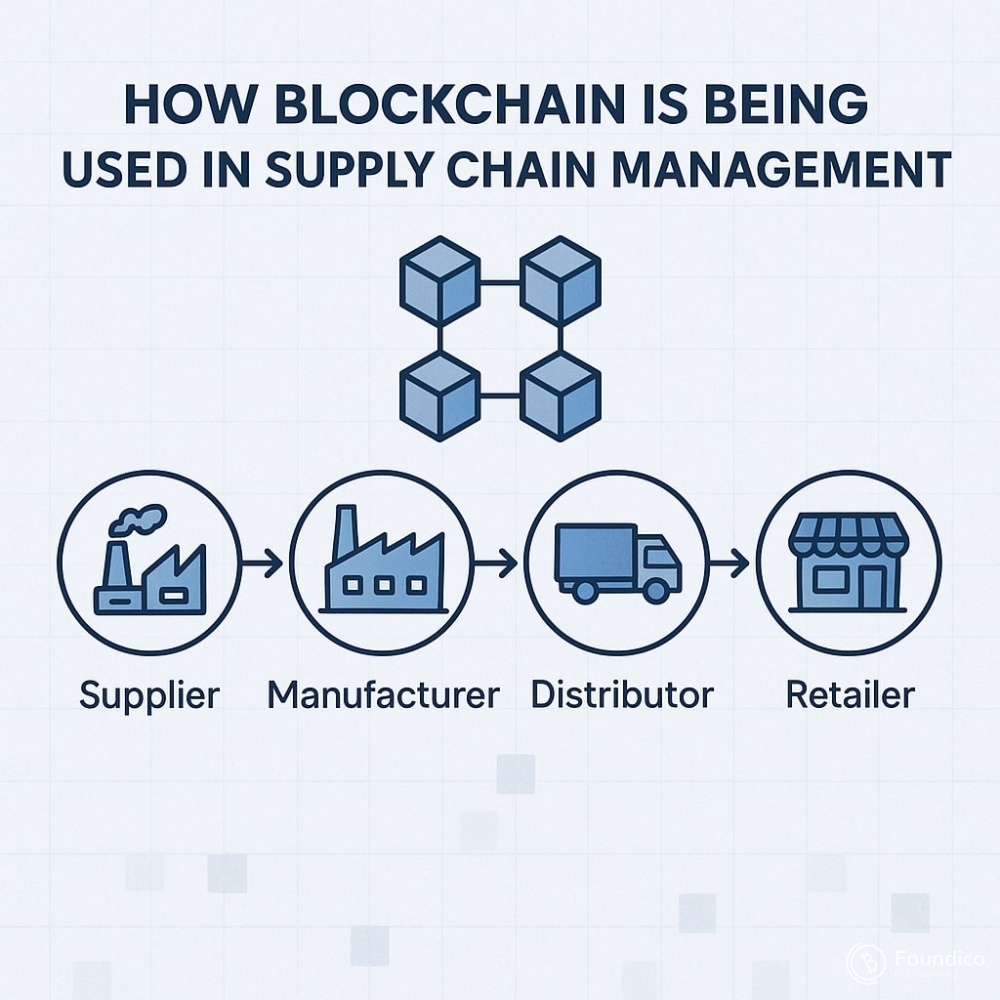How Blockchain Is Being Used in Supply Chain Management

By Dr. Pooyan Ghamari, Swiss Economist and Visionary
The global supply chain has long been a complex network of manufacturers, suppliers, logistics providers, retailers, and regulators. While globalization has created efficiencies, it has also introduced vulnerabilities—ranging from counterfeit goods and fraud to a lack of transparency and inefficiencies in tracking. In this landscape, blockchain technology has emerged as a transformative tool, offering solutions that enhance trust, accountability, and efficiency across supply chain ecosystems.
Transparency and Traceability
One of the most powerful features of blockchain is its immutable ledger. Every transaction or movement of goods can be recorded in a way that is secure, transparent, and verifiable by all participants. This ensures that stakeholders across the supply chain—from producers to consumers—can trace products back to their origin.
For example, in the food industry, blockchain enables retailers to track produce from farm to shelf, ensuring food safety and rapid response to contamination incidents. Consumers benefit from this transparency by being able to verify claims such as “organic,” “fair trade,” or “sustainably sourced.”
Combating Counterfeits and Fraud
Counterfeit goods plague industries such as pharmaceuticals, luxury items, and electronics, costing businesses and consumers billions annually. Blockchain provides a tamper-proof system of authentication, allowing products to be tagged with digital identities that are verified along the chain of custody. By linking physical goods with blockchain records, it becomes significantly harder for counterfeit products to infiltrate the supply chain.
Efficiency and Cost Reduction
Traditional supply chains rely heavily on paperwork, manual verification, and intermediaries. Blockchain simplifies these processes through smart contracts—self-executing agreements that automate and enforce terms once conditions are met. This reduces administrative burdens, minimizes delays, and lowers costs associated with disputes and inefficiencies. Logistics companies, for instance, can use blockchain to streamline customs clearance, reducing bottlenecks at borders and ports.
Enhancing Trust and Collaboration
Supply chains often span multiple countries and involve stakeholders with competing interests. Blockchain creates a shared, single version of the truth accessible to all participants. This fosters collaboration and trust, as parties no longer need to rely on centralized authorities or third-party verifiers. The distributed nature of blockchain ensures that no single actor can manipulate records to their advantage.
Integration with Emerging Technologies
Blockchain’s impact on supply chains is amplified when combined with technologies like the Internet of Things (IoT), artificial intelligence (AI), and big data analytics. IoT sensors can feed real-time data—such as temperature, location, or humidity—into blockchain systems, ensuring quality control for sensitive goods like pharmaceuticals and fresh produce. AI can then analyze this blockchain-secured data to optimize supply chain logistics and demand forecasting.
Challenges and Considerations
While blockchain offers immense promise, its implementation is not without challenges. Issues such as scalability, integration with legacy systems, regulatory compliance, and the cost of adoption must be addressed. Furthermore, collaboration and industry-wide standards are necessary for blockchain-based supply chains to achieve their full potential.
The Road Ahead
The use of blockchain in supply chain management is still in its early stages, yet its trajectory is clear. From improving transparency and reducing fraud to enhancing efficiency and building trust, blockchain is redefining how goods move around the world. As more industries embrace this technology, the global supply chain will evolve into a system that is not only smarter and more efficient, but also more resilient and accountable.
Blockchain is not just a technological upgrade; it is a paradigm shift in how we view trust and value in global commerce.
